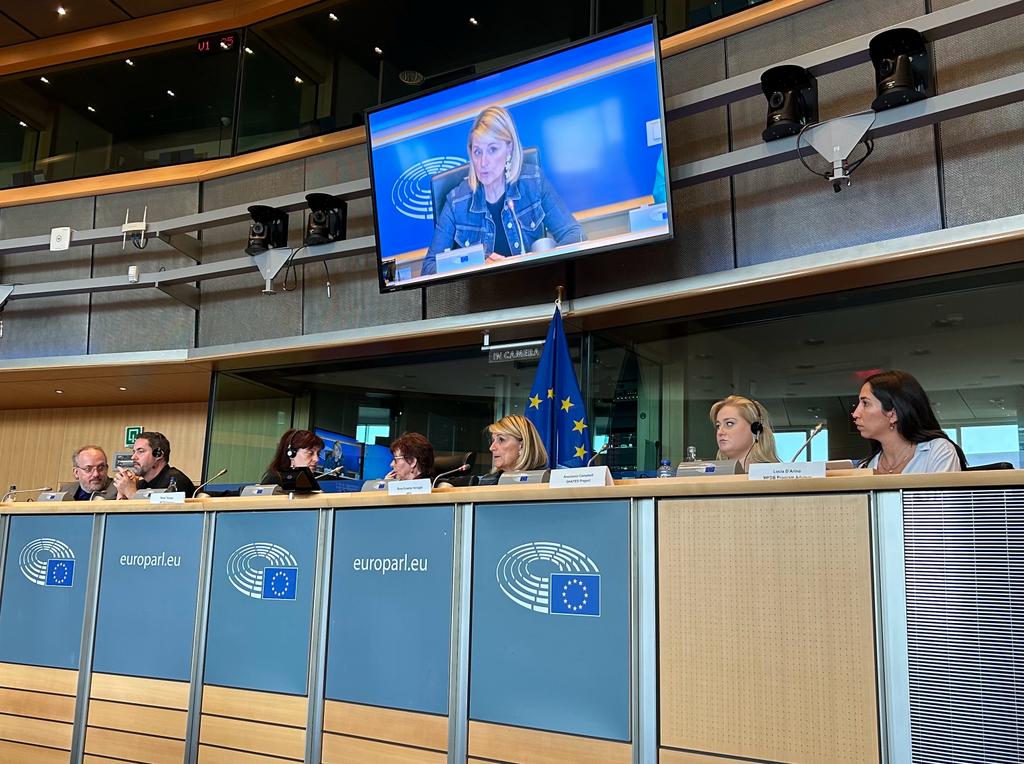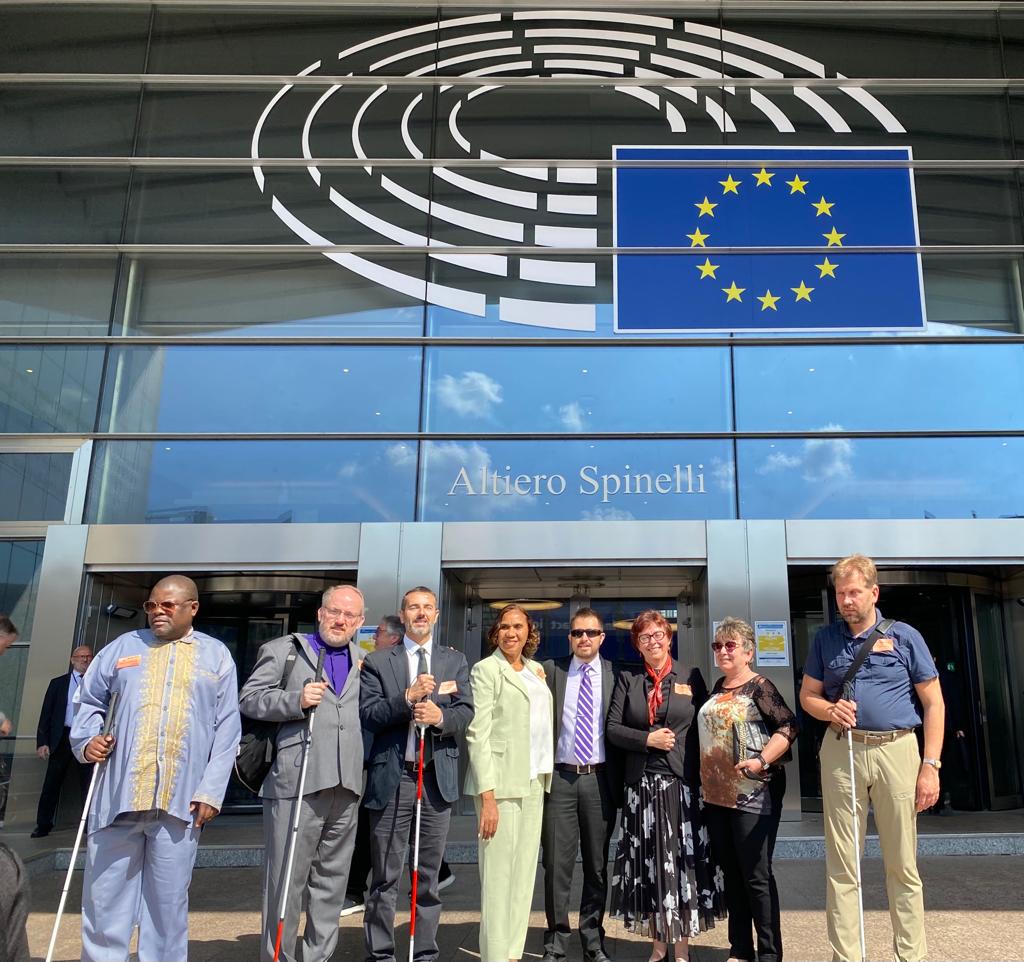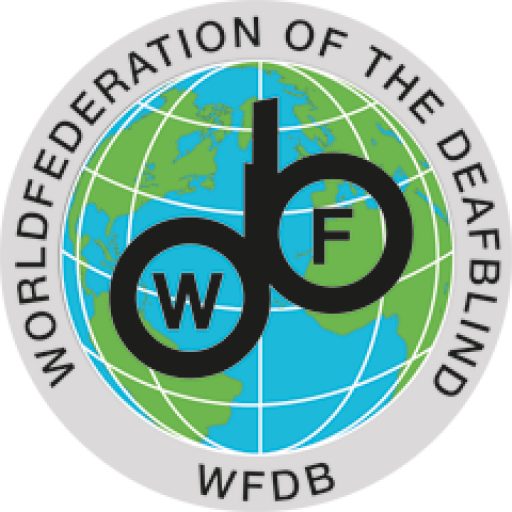On Tuesday 6th of June 2023, The World Federation of the Deafblind (WFDB) co-organised an event at the European Parliament in Brussels, Belgium. Members of the European Parliament Mr. Ádám Kósa (Hungary) and Ms. Rosa Estaràs Ferragut (Spain) co-hosted this 2-hour event to present WFDB’s recently published 2nd Global Report on good practices and recommendations for the inclusion of persons with deafblindness.
The event offered the opportunity to learn about the situation of persons with deafblindness, including good practices and recommendations for their inclusion. Moreover, the SHAPES Project, an Innovation Action funded by the European Union’s Horizon 2020 programme, was presented as a good example on how to include persons with deafblindness in large scale projects and mainstream programmes.
Summary of interventions

Ms. Sanja Tarczay, WFDB President and moderator of the event, opened the session by providing some welcome remarks where we were reminded that June is for many countries Deafblind awareness month, stressing that June 27 as the International Day of Persons with Deafblindness.
Mr. Ádám Kósa intervened through a video (click here to see it) since he was unable to attend the event physically due to last-minute national obligations. However, Mr Kosa emphasised the importance of data and statistics to increase the visibility of the situation of persons with deafblindness, highlighting that “WFDB study points out correctly that an important precondition to inclusion is data collection. Data makes the existence and needs of deafblind people undeniable”. He also shared that since 2018, Mr Kosa has been working on an important piece of legislation that will soon bear fruits: since January 2021 data collection on disability is obligatory based on the IESS regulation (EU regulation 2019/1700) establishing a common framework for European statistics relating to persons and households.
Moreover, Mr. Christopher Woodfill, WFDB Executive Council Member, presented the 2nd Global Report’s purpose which is to build on the findings and recommendations of the first global report, strengthen and consolidate the evidence from different regions and focus on good practices and case studies to answer the question – “How do we support the inclusion of persons with deafblindness?”, providing concrete guidance to governments and other stakeholders. This report represents a key advocacy tool not only for national and regional members but also for disability sector more broadly. As per the structure, the report includes a total of 17 policy areas or substantive chapters, which builds on and strengthens the topics from the 1st global report. In a nutshell, the 2nd global report urgent priorities are:
- Recognition of deaflindness as a unique and distinct disability
- Establish a system for informational resources and continuous training on deafblindness for essential frontline workers
- Establish publicly funded live assistance for persons with deafblindness as an essential service
- Provide funding for further research and data
Ms. Anastasia Campbell, SHAPES Project Manager from Maynooth University presented the SHAPES Project, which aims to facilitate long-term healthy and active ageing and the maintenance of a high-quality of life, in the community, involving more than 2000 older individuals. The reciprocal benefits of WFDB’s participation in the project were highlighted. For example, WFDB brings to the project the perspective of the deafblind community, ensuring the inclusion and accessibility of persons with deafblindness in the project. On the other hand, SHAPES brings to WFDB the opportunity to be at the forefront of pan-European technology development, its governance and the chance to influence policies and best practices internationally.
Ms. Lucía D’Arino, WFDB Program Advisor presented WFDB’s involvement in the project as a consortium partner and shared examples of the inclusion of older persons with deafblindness. The project can be seen as an example of a good practice on how to mainstream disability and deafblindness because:
- WFDB was involved from early planning stages
- Reasonable acommodations are reflected in the budget (i.e.: sign language interpreters)
- Accessibility meetings are often held
- Inclusion and accessibility have been adopted as a cross-cutting requirement
- WFDB has maintained ownership of the project and decision-making power
- The disability community is connected with hundreds of key stakeholders around the EU
- Direct involvement and participation of end users with different types of disabilities
- Data and information on older persons with disabilities has been collected
Ms. Rosa Estaràs Ferragut shared some closing remarks, where the importance of inclusion and equality for persons with disabilities in all areas of society was stressed.

We thank the speakers and attendees for their participation, which included WFDB Board, as well as the hosts and their team for their support to the deafblind community, and organisers of the event, which include the International Disability Alliance (IDA).
Presentations available to download
Download here Christopher Woodfill’s presentation on the 2nd Global Report
Download here Anastasia Campbell’s presentation on the SHAPES Project
Download here Lucia D’Arino’s presentation on WFDB’s involvement in the SHAPES Project
